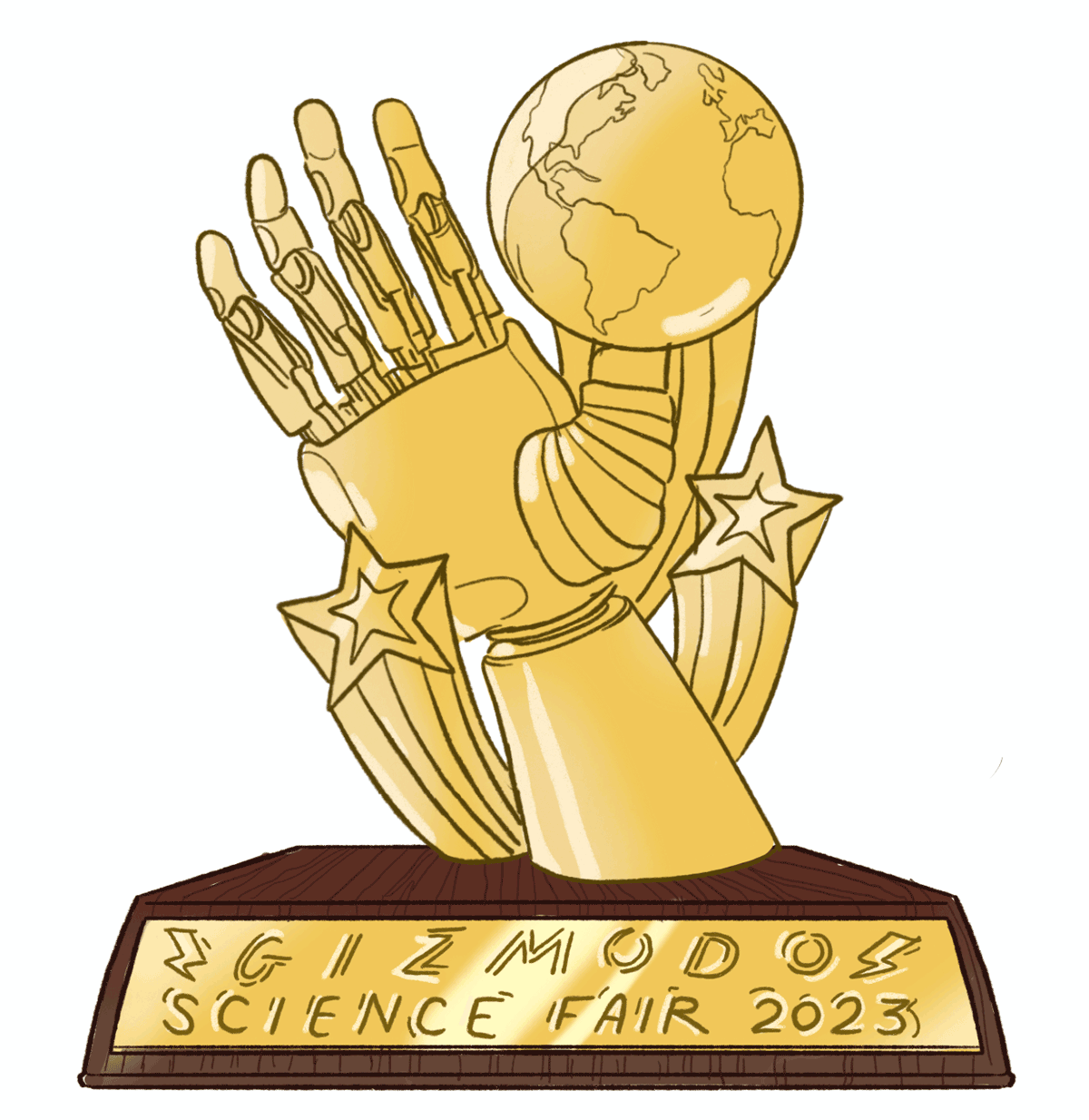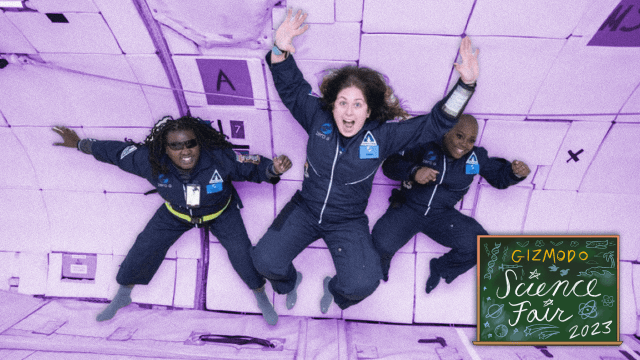AstroAccess is a winner of the 2023 Gizmodo Science Fair for pushing for universal accessibility in the space environment and for running pathfinding tests in zero-gravity with help from disabled individuals.
The Question
As we seek to increasingly live and work in low Earth orbit and beyond, how can we ensure space is accessible to everyone?
The Results
AstroAccess, in addition to promoting disability inclusion in space, has been conducting tests with disabled people in a simulated weightless environment, namely parabolic flights chartered with the Zero Gravity Corporation. These tests are conceived, developed, and performed by an international team of disabled scientists, students, veterans, athletes, and artists, and they’re providing early insights into the kinds of accommodations that will work to make space a welcoming and productive place for all people. The disabled crew performs its tests inside a specially configured cabin while the B-727 aircraft performs 18 parabolic manoeuvres that provide short periods of weightlessness. To date, AstroAccess has coordinated two of these flights, the first in October 2021, in addition to participating in smaller partner missions.
The tests are showing how individuals with various disabilities fare in weightlessness, how their prescribed accommodations are or aren’t working, and whether certain accommodations are even necessary (e.g., prosthetic legs in zero-g proved to be major annoyances and wholly unhelpful). The tests are also uncovering the unexpected, such as noise levels inside the cabin that made it next to impossible for the deaf and hard-of-hearing crew to run their sound-based experiments.
What’s more, these flights are revealing how certain disabilities “disappear” in space, and even ways in which certain disabilities confer an advantage. Dwayne Fernandes, an ambassador for AstroAccess and double amputee who participated in a recent flight, described disability as a condition plus barriers. “In that zero-g flight, I had my condition — the condition stayed — but the barrier went. That became a profound and weird feeling that caused me to re-identify myself.”
Among the company’s early demonstrations is a light-signalling system for people who are deaf or hard of hearing and a series of tactile, wall-mounted graphics to guide blind astronauts toward key equipment like fire extinguishers. The parabolic flights tested the ability of disabled participants to carry out basic tasks in the zero-g environment, whether it was to simply move around the cabin or perform the critical seat docking drill, which requires the buckling of a five-point harness. And for people with lower limb disability, a two-point anchoring belt was tested to positive results, allowing them to remain stationary while performing tasks.
Why AstroAccess Did It
To date, our approach to space has been very ableist-oriented, a consequence of the militaristic Cold War mentality that fuelled the first Space Race between the United States and Soviet Union, as Fernandes explained. With that episode now in the rear-view mirror, and with space opening up to more people with a variety of ambitions and goals, the time has come to remedy this oversight, explained Anna Voelker, cofounder and executive director of AstroAccess.

“This is a perfect point in history to be talking about accessible design from the start, as opposed to having to retrofit something that’s already up in orbit,” Voelker said, adding that “it’s the right thing to be doing — it’s what is just and equitable.” Moreover, “it doesn’t make sense to design something that so many people couldn’t access,” as in the United States, “25% of individuals have some type of disability,” they explained. “You’re actually creating benefits for everyone and not just those who have historically been excluded from the opportunity.”
AstroAccess has already been in contact with the developers of future commercial space stations to consult on potential designs.
Why They’re a Winner
AstroAccess is laying the groundwork for the inevitable and is doing so in the right way, with the right people. As Fernandes put it: “You are not leaving this planet without us.” George Whitesides, an AstroAccess project lead and chair of the space advisory board for Virgin Galactic, said: “It’s an important moment, to bake into the identity of space, a sense of accessibility, and that it’s for all of humanity.” AstroAccess also deserves credit for its innovative in-flight demonstrations, which represent an important start in making space a universally accessible place to live and work.
What’s Next
The AstroAccess demonstrations are “going to get more scientific” and “studied more deeply and aggressively,” said John Kemp, an ambassador with AstroAccess and a disability rights attorney. Kemp, a quadruple amputee, participated in the most recent zero-g flight, which took off from Houston, Texas, on December 15, 2022. He said there’s “no question that people with disabilities will feel that they have every right, and should feel that we have every right, to participate in future space travel.”
Voelker aims to collaborate with more companies and work on various accessibility solutions to “actualize those concepts,” in addition to continuing zero-g flights, doing more fundraising, and securing actual spaceflight opportunities.
The Team
View the full AstroAccess team here and a list of its ambassadors here, here, and here.
See the full list of Gizmodo Science Fair winners
Read more: ‘You Are Not Leaving Without Us’: Why Disabled Astronauts Are Key to Humanity’s Future in Space
